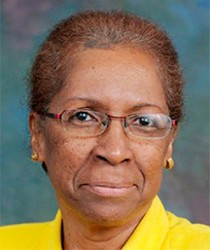By Pushpa Balgobin
in Paramaribo, Suriname
Guyana has not reported sugar data to the Caricom Council for Trade and Economic Development in recent years due to the Guyana Sugar Corporation focusing on its lucrative European contract which makes it unable to provide a reliable regional supply.
Dismal sugar output in recent years has meant that GuySuCo has little surplus sugar outside of its European Union quota of around 167,000 tonnes.
Desiree Field-Ridley, Caricom’s trade and economic Integration Officer in Charge told Stabroek News that Guyana had a firm contractual arrangement with Jamaica to supply sugar but over the last two to three years GuySuCo has been unable to meet the demands for various Caricom countries.
She spoke on Wednesday during the Caribbean Agriculture Research and Development Institute (CARDI) and the Technical Centre for Agriculture and Rural Co-operation (CTA) Caribbean Week of Agriculture being hosted this year by Suriname.
Field-Ridley, a Guyanese, said that sugar supplies are not reliable and as a result regional shippers have been unable to coordinate with suppliers. She noted that of course it was not just sugar that was having trouble with shipments regionally, but that historically transportation costs have been a region-wide issue.

She said that Guyana has not been able to give firm commitments to supply the region’s sugar demands. She told Stabroek News that it was a chicken and egg situation in terms of transportation limitations where suppliers say there is a lack of transport and shippers say that suppliers are not regular or reliable.
As part of its blueprint over the last decade, GuySuCo has aimed at the regional market but production has fallen below the required amount.
Caricom’s officer in charge acknowledged somewhat that the region has yet to come up with a comprehensive framework to tackle sugar demands and requirements with the end of European Union sugar quotas just around the corner.
She said that unfortunately very little action is taken until the last minute when asked by Stabroek News if the African, Caribbean and Pacific Group of States (ACP) did not have years to prepare for the end of European sugar quotas having been given a two-year extension to 2017.
Regionally, sugar producers’ current cost of production is more than the global price per sugar. GuySuCo currently produces sugar at double the world market price at an average of US$0.35 per pound.
Field-Ridley said that at the COTED meeting today regional agriculture ministers would look at the recommendation that came out of a stakeholders’ meeting held earlier this year.
She noted that one of the issues that would be discussed is the fact that many small producers have bowed out from sugar production knowing they will not have the ability to compete with the larger regional producers such as Belize, Guyana and Jamaica, without EU support.
The Caricom representative said that the regional market was not being exploited to its full potential and that “the Caricom market is a market which we sometimes service, sometimes don’t service.”
She said that the idea was to focus on the regional market because historically sugar is a way of life and that meant it would not be going anywhere. She had stated earlier in the week that she did not want to pre-empt any answers that would come from the meeting today.
Diversification and sugar refineries have been talked about for years, but little has been done regionally to get the ball rolling on the value added end. Field-Ridley stated that this was true and at that point noted that it was the responsibility of policy makers to address the issues.
She revealed that for two months the COTED maritime steering committee has been trying to facilitate a meeting between producers, exporters and shippers to coordinate satisfactory measures to bring costs down and have reliable transportation needs met.





